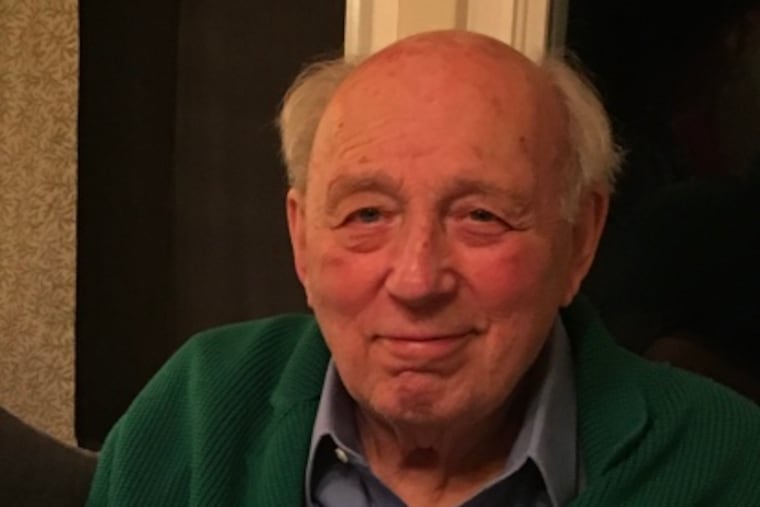John Lukacs, 95, distinguished educator and author who wrote about Churchill
John Lukacs could mesmerize listeners around a dinner table with his knowledge of European history, especially the diverging views of Churchill and Hitler. Being there was like listening to Mike Schmidt talk baseball, a friend said.

John Lukacs, 95, a distinguished historian, educator, and authority on Winston Churchill, died Monday, May 6, of congestive heart failure at his home in Phoenixville.
Born and raised in Hungary, Mr. Lukacs came to the United States at the end of World War II, when his country was occupied by a Soviet-allied government and became part of the Eastern Bloc.
With an advanced degree in history from the University of Budapest, he found employment first at Columbia University in New York and then as a history professor at Chestnut Hill College, where he taught for 48 years ending in 1994.
He also served as a visiting professor at Columbia, Johns Hopkins, La Salle, and Princeton Universities, as well as the University of Budapest.
An authority on Eastern European history, he wrote 35 books, all in English, his second language. He delved into a wide range of topics, from portraits of prominent Philadelphians to a depiction of his native city, Budapest, as it was in 1900.
He kept returning to three subjects. The first was the Cold War and the place of Eastern Europe within it. His 1961 and 1966 histories of the Cold War are required reading in many college courses, his family said.
The second was World War II, particularly the opposing views of Winston Churchill and Adolf Hitler. The Last European War (1976), The Duel (1991), and Five Days in London, May 1940 (1999) explored what he saw as the defining conflict of the 20th century: an old-fashioned patriotism vs. a new, dangerous type of nationalism.
That paradigm brought him a new audience of moviegoers after his book Five Days in London inspired the 2017 movie Darkest Hour. The film starred Gary Oldman in an Oscar-winning performance as Churchill.
Finally, he wrote about how the postwar era signaled the end of an age of civility. Modernity, he argued, had run its course since the printing of the Gutenberg Bible, and a new barbarism would take its place.
That prediction brought him another new audience through the articles he wrote for the American Heritage, American Scholar, Harper’s, National Review, and the New Yorker.
Mr. Lukacs’ ideas defied easy classification, his family wrote. He was for a time a darling of conservatives, but he rejected the notion that people could be defined as hewing to the political left or right.
The Cold War, he argued, had never been a conflict between communism and democracy; rather, it was a struggle between Russia and the United States. At the same time, he insisted that economic conditions never determined human belief. “As a thinker, he remained to the end a true original,” his family wrote.
A friend, Chester County lawyer Jim McErlane, had the chance to hear Mr. Lukacs expound on his views at many dinners. “John was absolutely magnificent,” McErlane said. “I would sit there like a little kid listening to Mike Schmidt talk baseball.”
For more than six decades, Mr. Lukacs lived outside Phoenixville, where he found friends and a home in rural surroundings far removed from the one he knew as a youth.
“But he loved it and never left it, dying in a bed moved into his downstairs library,” his family wrote. “In his closing days, as he drifted in and out of consciousness, he talked in Hungarian as much as in English, signaling a life come full circle.”
Mr. Lukacs was married three times, first to Helen Schofield, who died in 1971; then to Stephanie Harvey, who died in 2003; and then to Pamela Hall, a marriage that ended in divorce. She survives.
He is also survived by a son, Paul Lukacs; daughter Annemarie Cochrane; stepchildren Charles Segal, Peter Segal, and Hilary Felton; and five grandchildren.
A funeral Mass will be celebrated at 10 a.m. Wednesday, June 5, at St. Mary of the Assumption Catholic Church, 212 Dayton St., Phoenixville. Burial will be private.
Memorial donations may be made to St. Mary of the Assumption Catholic Church via www.stmaryassumption.org.